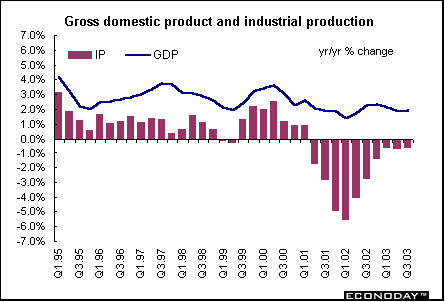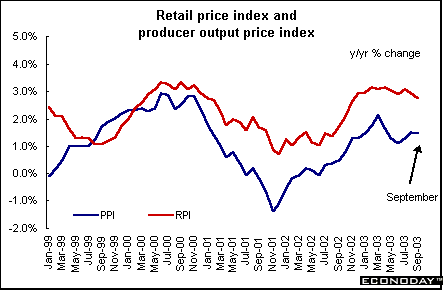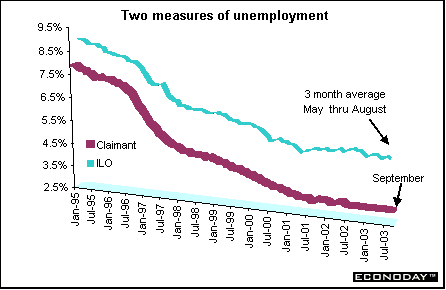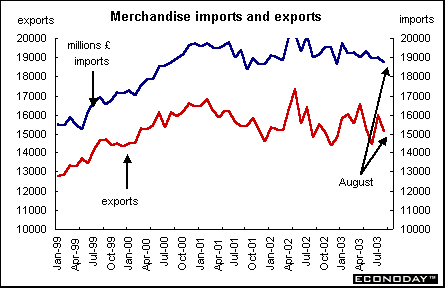

|
Gross Domestic Product and Industrial Production - Britain has managed to avoid a recession despite weakness elsewhere in the global economy. Economic growth has come from a strong and thriving services sector that has more than offset a weak and declining manufacturing sector. One reason for manufacturing's weakness up until now has been the strong value of the pound especially against the euro. This makes British manufactured products very expensive in the eurozone, the nation's primary export market. However, the pound sterling has declined of late. Manufacturers have begun to show signs of life in the third quarter. As in the U.S., the consumer and housing have provided the backbone of growth.
Inflation
The Bank of England will adopt a new measure of inflation in 2004 - the harmonized index of consumer prices (HICP), which strips out housing costs. The gulf between this measure and the currently used retail price index excluding mortgage interest payments (RPIX) is at its highest level in 14 years. The HICP was 1.4 percent while the RPIX was 2.8 percent on the year. Unemployment - Two unemployment measures are used to evaluate labor market conditions. The first is the claimant unemployment rate, which remains at an all-time low of 3.1 percent. The second is the International Labor Organization unemployment rate, which excludes jobseekers that did any work during the month. In both cases, the unemployment rate has consistently fallen since peaking in 1992. Unemployment has not risen even though growth has slowed.
Merchandise trade - Britain's merchandise trade balance has historically been negative. Like the U.S., Britain must rely on healthy investment income from abroad and service exports to fund its appetite for imported goods. The greatest volume of trade takes place with other EU countries, thus the exchange rate between the pound sterling and the euro plays a crucial role. The weak euro has made British manufactured goods very expensive and has cut into exports to Europe, its most important trading partner.
|
Currency • Bank of England • Equities Markets



